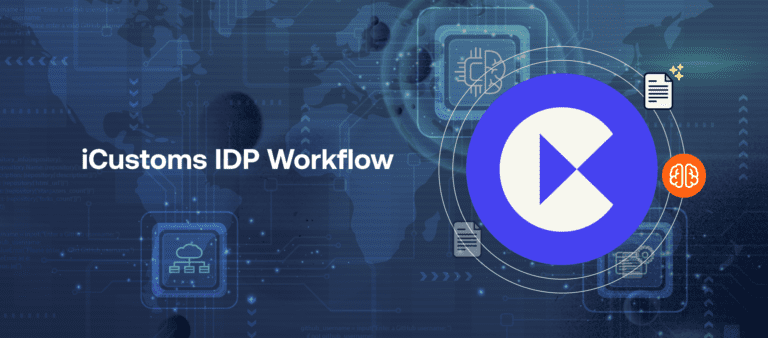Fast & Accurate ENS GB & EU ICS2 Solutions Built for You.
Navigating the 2024 Landscape: Stability, Challenges, and Sustainability in the Global Supply Chain
-
Freya Jane
- Director of Customer's Success
After years of instability, the global supply chain appears to stabilise in 2024. Important indicators are slowly reverting to their pre-pandemic levels, indicating a return of some sort of normality. But there are still plenty more obstacles ahead, so hang on to your hard hats.
Customer Demand and Economic Headwinds: A Balancing Act
While a sense of stability is developing, there is no space for complacency. Due to the recent interruptions, shippers will need to be nimble in order to negotiate the uncertainty of the upcoming year. Economic headwinds and decreased client demand will surely continue to affect the logistics industry. Consider it a fine balancing act that requires flexibility while controlling expenses.
Concerns about the Environment and Geopolitics: Looking Past the Usual Suspects
The global supply chain is facing more than simply economic challenges. Geopolitical and environmental variables are also delaying the well-oiled machine. Droughts threatening the Panama Canal, as well as continuing wars that impede critical transportation routes, serve as sharp reminders of our world’s interconnectivity.
It serves as a reminder to logistics companies that they must work closely with suppliers and carriers to negotiate good rates and build strong connections. In these difficult circumstances, maintaining a unified front is essential.
Five Major Trends Changing the Supply Chain for 2024
1. Nearshoring: Redefining Sourcing Strategy
Nearshoring is changing how companies approach their sourcing strategies. Instead of distant production centers, they’re now opting to bring manufacturing closer to their target markets. This shift aims to cut down lead times, enhance adaptability, and mitigate the risks associated with global disruptions. Consider Mexico’s rise to dominance as the United States’ top trading partner, especially in the automotive industry: this is a practical illustration of nearshoring in action!
2. Automotive Industry Revs Back Up – With Sustainability in the Driver’s Seat
The automotive sector is set to revive despite early obstacles, including inflation and the cost of raw materials. It is anticipated that demand will increase globally due to the growing popularity of electric cars. This change introduces new dynamics to the business, especially with regard to the appropriate recycling and transportation of lithium-ion batteries, which is an essential component of a sustainable future.
3. Booms in E-Commerce: Advancing Innovation in Logistics
Even while there may be challenges affecting the overall economy, e-commerce continues to be a bright light, driving development in particular freight categories such as air cargo. This rapidly changing environment highlights the necessity of ongoing digitalisation, improved customer service, and optimsed last-mile delivery options. Consider same-day delivery the standard, not the exception!
4. Industry 4.0: Using AI to Boost Operational Efficiency
AI, the Internet of Things, and cloud computing are driving a digital revolution in the manufacturing and warehousing industries. The Industry 4.0 revolution offers enormous benefits. It’s thrilling to think of AI-powered solutions like CEVA’s predictive visibility system, which can properly forecast vessel arrivals and boost industry performance.
5. A shared commitment to a greener future.
Sustainability is no longer just a phrase; it is a top concern for the global supply chain. Stakeholders are calling for uniformly low carbon emissions and ecologically friendly operations. This rising commitment is reflected in industry-wide measures like the COP 28 accord to decarbonize shipping. The low-carbon solution pilot projects from CEVA show initiative in this vital area.
iCustoms: Your ally for Legal, Sustainable Trade
At iCustoms, we support easy trade compliance without sacrificing environmental integrity. That is why we are at the forefront of the green revolution. Our cutting-edge IDP system does away with paper-based procedures by using AI to automate document processing and data extraction. This is how it helps you:
Improved Compliance Accuracy and Efficiency: Bid farewell to mistakes in manual data entry! By ensuring correct and speedy customs clearance, IDP minimizes delays and possible fines. Additionally, it minimizes the need for extra paperwork and in-person verification, significantly expediting the procedure.
Minimizing the Environmental Footprint: By enabling companies to become paperless, iCustoms helps them drastically cut back on the amount of paper they use, which immediately helps to save resources and minimize deforestation. Fewer physical papers also mean lower transit emissions, which reduces the total environmental effect of global trade.
However, we’re not only committed to paperless operations. Our AI-driven solutions optimize logistical routes to reduce unnecessary travel and the emissions that go along with it. Furthermore, our systems’ real-time tracking and visibility allow for quick problem detection and remedial measures, which further lessen the environmental effect caused by inefficiencies.
Don’t let inefficiencies and environmental concerns hold your business back. See how iCustoms can streamline your operations and minimize your footprint. Watch a demo to learn more.
